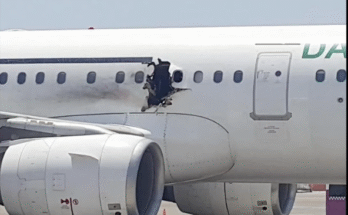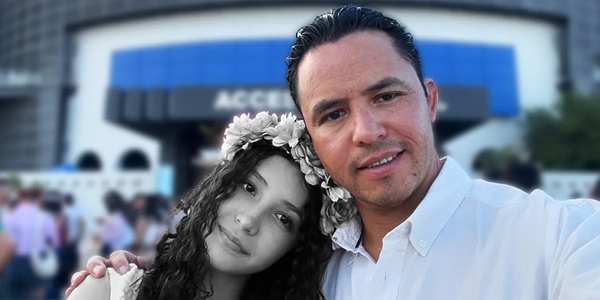
The tragic death of 14-year-old Paloma Nicole Arellano Escobedo in Durango, Mexico has shaken the nation, igniting outrage, legal battles, and urgent questions over medical ethics, parental responsibility, and the safety of minors in private clinics. What began as a father’s search for answers has now escalated into a judicial investigation that could redefine how cosmetic procedures on adolescents are regulated in Mexico.
According to her father, Carlos Said Arellano, Paloma was taken to the private Clínica Santa María on September 12, 2025, where she allegedly underwent breast implants, liposuction, and gluteal augmentation. He says he was never consulted or asked for consent. Instead, he was told by Paloma’s mother that his daughter had tested positive for COVID-19 and that they were retreating to the mountains to isolate—without phone service.
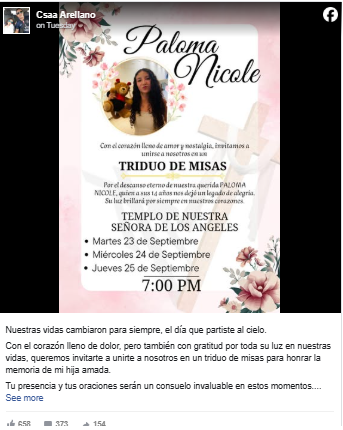
Days later, Paloma developed severe complications. She suffered a respiratory arrest and brain swelling, was placed in an induced coma, and intubated. On September 20, doctors declared her brain dead. The official death certificate attributed her death to “cerebral edema from a respiratory illness,” a description her father fiercely disputes.
It was only during Paloma’s funeral that the truth began to unravel. Viewing his daughter’s body, her father says he discovered surgical scars and implants—stark evidence that contradicted the story he had been given. Convinced that his daughter’s death was the result of unauthorized surgery, he filed a formal complaint with the Durango State Attorney General’s Office, demanding an autopsy and a full investigation into the surgeon, the clinic, Paloma’s mother, and anyone else who may have been involved.
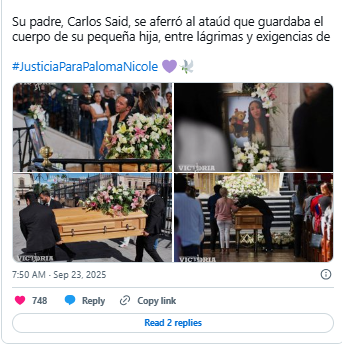
Authorities have since launched a wide-ranging probe. Clinical records, consent forms, and surgical protocols are under review, and an official autopsy has been ordered to determine the exact cause of death. Because the body had already been prepared by a funeral home, the process is expected to take 10 to 20 days. The surgeon identified in the case, Víctor Manuel R. G., has been suspended pending results.
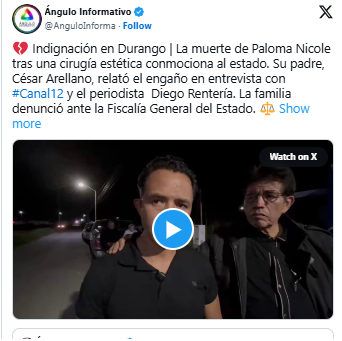
The case has captured national attention and sparked political pressure. Durango’s governor, Esteban Villegas Villarreal, has vowed that “there will be no impunity” if wrongdoing is confirmed. Meanwhile, civic groups and grieving citizens have taken to the streets in Durango, demanding justice, transparency, and stronger protections for minors against high-risk cosmetic surgeries.
For Paloma’s father, the grief is compounded by suspicion of a cover-up—one he believes began with the rushed death certificate and misleading explanations. He continues to fight for accountability, insisting that the truth about what happened to his daughter must come out. Whether this case leads to charges of medical malpractice, parental negligence, or even criminal wrongdoing will depend on the autopsy findings.
But one thing is already clear: Paloma Nicole’s death has become a catalyst for national soul-searching, raising urgent questions about the ethical responsibilities of doctors, parents, and the state in protecting vulnerable young lives.


